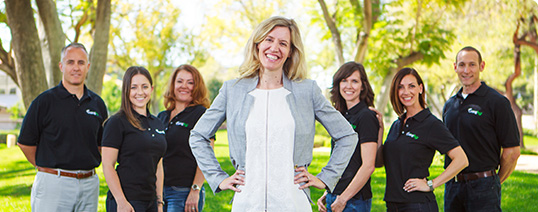Preparing for a Successful College Interview
Make a more meaningful connection to the interviewer, helping him or her to make a positive recommendation to your chosen school.
The admissions interview is a part of the application process at many highly selective universities. Georgetown University requires an interview with a local alum, and many other highly selective schools require or recommend them either on campus or with a local representative. Requesting an interview at a school that does not require one may allow you to put a personal touch on your application and potentially help you. It is important for you to prepare and do well if you do have an interview because it can also harm your chances if you do not do well.

Helping Students with Interview Preparation
The team at Going Ivy includes former admissions officers from some of the most elite colleges in the nation. When we help students with their interview preparation, we are able to give our clients an edge by having the perspective from the inside. We can help you to walk through some of the types of questions you might be asked, and we will also help you to understand the types of questions that you should ask. We believe that by helping you to understand what you might expect in your interview, we can help you to make a better and more meaningful connection the interviewer, helping him or her to make a positive recommendation to your chosen school.
What are you looking for in a college?
What is your favorite pastime?
What do you like most about high school?
The questions the interviewer might ask are really getting at: Why is this student applying to our school? And what personal and academic qualities will make him or her a success at our school? Your answers to any interview questions asked should answer these underlying questions precisely and passionately.
What to Understand About Interviews
It is common to feel nervous about being interviewed. If you develop strong interviewing skills now, however, those skills will benefit you throughout your adulthood. Just like with the interviews that you will have as an adult, adequate preparation is key. If you fail to prepare, you risk making a bad impression and securing a denial recommendation from your interviewer. When you undergo an evaluative interview, expect it to be an opportunity for both you and the interviewer to learn more about whether or not the school is the right one for you.
Don’t just show up to your interview without first researching your school. You will have the opportunity to ask questions, and you don’t want to ask about things that are easily found on the school’s website. If you do this, it can make you appear as if you are not truly interested in attending the school. Colleges usually allow only one interview per applicant, so you only get one shot.
How to Schedule Your Interview
Some schools place the onus on applicants to request interviews while others contact the applicants to schedule them. You’ll need to check your school’s website or call its admissions office to find out the process that each school uses for its interviews. Princeton, for example, says that interviews are not required and that applicants will be contacted if they will be interviewed. It is important that you do not wait to schedule your interview. Check with your preferred school well in advance of your application deadline to see if interviews are available.
Practice Makes Perfect
While it is impossible to know the questions that you will be asked in advance, there are some common questions that you might expect. Going Ivy can help you practice answering those questions in a mock interview. You’ll also need to have questions ready to ask your interviewer. Your interviewer’s goal will be to get to know you rather than to grade you on your ability to say what you think he or she wants to hear. Your goal is to become more comfortable rather than memorizing a bunch of rote answers. Practice will bring that comfort. Your Going Ivy counselor will ask you a number of interview questions that are commonly asked of college applicants. He or she may also throw a few curveball questions in just like your interviewer is likely to do. It is important that you treat your mock interviews seriously and that you internalize the suggestions you are given so that you can derive the most value from them. When you have your mock interview, act as if it is the real interview so that you can gain added benefit from it.

What Not to Do
There are several things that you should not do during your interview. Do not use slang because it makes you seem immature. You should also dress up and not wear clothing that is revealing. Your clothing choice should be business casual rather than formal clothing. Your shoes are also important, and you should choose dress shoes instead of tennis shoes.
Don’t be late to your interview, and if possible, don’t bring your parents. Your interview is a chance for you to show that you have the maturity and independence that are required for being successful in college. Set your alarm early on the day of your interview and allow yourself plenty of time to get to the location. Greet the interviewer, making certain to shake his or her hand. Concentrate on what the interviewer is asking you and make eye contact. Don’t interrupt him or her, and avoid the urge to brag on and on about your accomplishments. Practicing humility and sincerity is just as important as practicing your answers to common questions.
Contact Going Ivy
The application interview is just one of many parts of the college admissions process. If you do well in it, you may improve your chances of gaining admission to your dream school. Going Ivy has multiple consultants, counselors and tutors who understand what it takes to be successful with your interview, and we can help you prepare for it. Call Going Ivy to learn more about how we can help you with all of your college application needs.
Clients Accepted To

Our Team
Meet our team of former admissions officers, Ivy League and top school graduates, and tutors.
